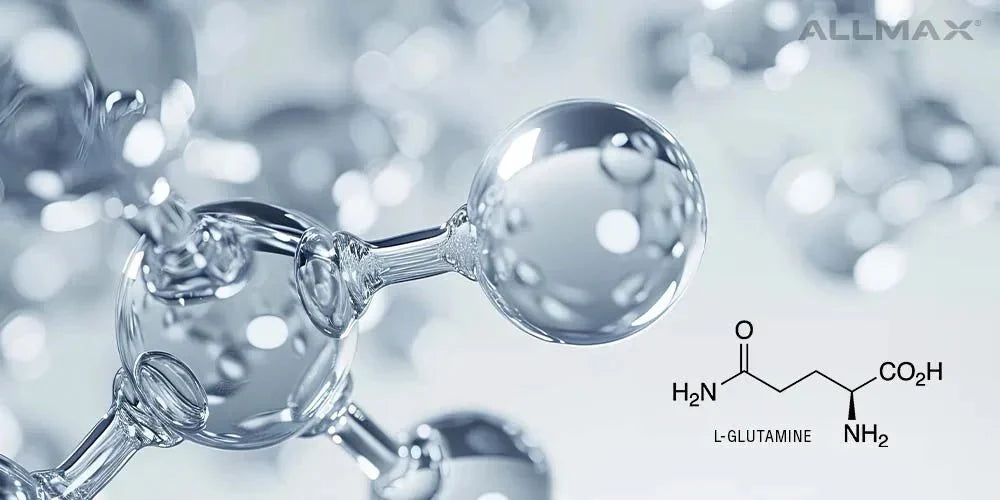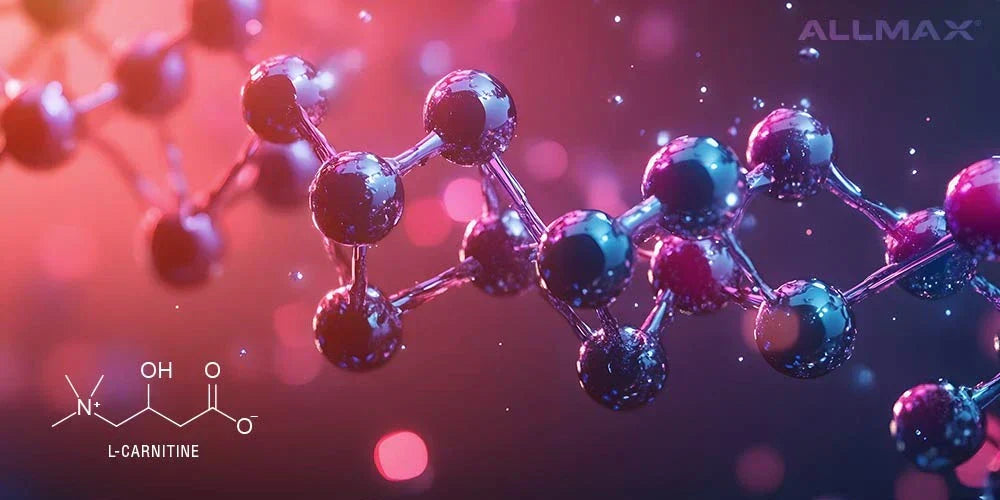L‑Alanine is a non-essential amino acid naturally produced by the body. However, for athletes, supplementing with L‑Alanine may support energy production, muscle recovery, and endurance. Below is a concise breakdown of its key functions, how it differs from Beta‑Alanine, and why it may be a valuable addition to your training regimen.
What is L-Alanine?
L‑Alanine is a non-essential amino acid, meaning the body can produce it on its own. It’s also found in protein-rich foods such as meat, eggs, and dairy. While L‑Alanine serves as a fundamental building block for proteins, it may also support energy production and performance, making it especially valuable for athletes and active individuals.
As one of the simplest amino acids, L-Alanine is easily absorbed and used in multiple biological functions, including energy metabolism and tissue repair. It is involved in energy metabolism, helping convert nutrients into glucose that your muscles can use during prolonged or intense exercise. This is especially helpful when carbohydrate stores are running low.
Additionally, L-Alanine participates in the glucose-alanine cycle, a metabolic process that helps transport nitrogen from muscle tissues to the liver, where it can be safely eliminated. This supports muscle recovery and overall metabolic balance after workouts.
Because of these functions, L-Alanine helps athletes maintain energy, protect muscle tissue from breakdown, and recover more efficiently.
What does L-Alanine do?

L‑Alanine plays several key roles in athletic performance and recovery, especially during prolonged or intense physical activity. Here's how it helps your body stay strong and energized:
-
Maintains stable blood sugar levels. During long training sessions, your muscles break down proteins and release amino acids like L‑Alanine into the bloodstream. The liver then converts it into glucose—providing a steady energy source and preventing energy crashes.
-
Supports muscle preservation. When your body runs low on carbs or during fasted training, it may turn to muscle protein for fuel. L‑Alanine offers an alternative energy route, reducing muscle breakdown and helping maintain lean mass.
-
Reduces toxic byproducts from exercise. Intense training produces waste like ammonia. L‑Alanine helps transport excess nitrogen to the liver, where it’s safely eliminated—this supports cleaner recovery and better metabolic health.
-
Aids in overall recovery. Following intense training, L‑Alanine contributes to glycogen restoration and tissue repair, promoting metabolic stability and minimizing post-exercise soreness.
Product Contains L-Alanine
Benefits of L-Alanine

Optimized for active individuals, supplementing L‑Alanine can deliver:
-
Increased endurance by supporting energy during long or intense workouts
-
Faster recovery with reduced muscle breakdown
-
Stable glucose level , helpful during fasting or endurance training
-
Support for organ detoxification and nitrogen management
Side Effects of L-Alanine
L‑Alanine is generally considered safe when consumed in moderate amounts. However, potential side effects may include:
-
Mild digestive discomfort when taken in high doses
-
Amino acid imbalance if excessively consumed without other supporting amino acids
Always consult a healthcare provider, particularly if you're pregnant, nursing, or on medication
Beta‑Alanine vs L‑Alanine

When it comes to amino acids and athletic performance, it’s important to recognize that not all forms of alanine are the same. Two commonly mentioned compounds are L-alanine and beta-alanine. Although their names sound similar, they differ significantly in both chemical structure and the roles they play in the body.
These compounds differ in structure and performance roles:
|
Feature
|
L‑Alanine
|
Beta‑Alanine
|
|
Chemical type
|
Alpha-amino acid
|
Beta-amino acid
|
|
Major role
|
Glucose production, nitrogen transport
|
Carnosine precursor
|
|
Benefit for athletes
|
Recovery, glucose stability, endurance
|
Buffers acid buildup during intense effort
|
|
Common supplemental use
|
Recovery & metabolic support
|
Performance in sprints & high-intensity bouts
|
Bottom line: L‑Alanine supports recovery and energy, while Beta‑Alanine helps with buffering and power output.
L-Alanine For Athletes: Should You Use It?
If you're training hard, recovering often, or have long workouts ahead:
-
Yes, supplementing with L‑Alanine (sometimes alongside BCAAs) might help preserve muscle and enhance recovery.
-
Taking L‑Alanine in a balanced formula is advisable, especially when paired with other amino acids.
If you're looking for an easy way to boost performance, ACuts Amino Energy Drink delivers L‑Alanine, key aminos, and natural caffeine for clean energy, sharper focus, and better recovery.
References:
-
Gervasi, M., Sisti, D., Amatori, S., Donati Zeppa, S., Annibalini, G., Piccoli, G., ... & Sestili, P. (2020). Effects of a commercially available branched-chain amino acid-alanine-carbohydrate-based sports supplement on perceived exertion and performance in high intensity endurance cycling tests. Journal of the International Society of Sports Nutrition, 17(1), 6.
https://www.mdpi.com/2072-6643/12/8/2295




